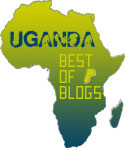GVO Summit, Day 2, Session 2
Session 2: The Wired Electorate in Emerging Democracies
Moderator: Solana Larsen
GV as a hub for global info -- MSM comes to them and asks who they can talk to when crises happen
what makes bloggers feel responsible for citizen journalism? what makes them get up at 3 a.m.?
how was Twitter used? (Luis Carlos: I need Twitter b/c I speak a lot, I need a character limit, forces you to be creative & react immediately)
no one really seems comfortable with term "citizen journalism" -- do bloggers think of selves as journalists? (Onnik: it was journalists blogging, things were polarized and threats were made)
who are Iranians learning from (in terms of using social media)? -- Hamid: 60,000 Iranian bloggers, learn from multiple sources & from each other
Daudi Were, Kenya
Note: for more on blogging the 2007 Kenya elections, check out Ory Okolloh's talk from Day 1, Session 2
Kenyan elections: Kibaki (incumbent) vs. Odinga
around 800 bloggers (note to blogren: why do you think Kenya has so many more bloggers than Uganda? is it pure economics/technology, or are there a social/cultural reasons as well?)
SMS & Facebook used in elections -- esp. SMS, which was used for getting ppl to polls as well as for threatening messages
bloggers were constant presence during elections
Twitter
mainstream media was under attack, which bloggers seemed to care more about than its own members did
challenges: bandwidth
bloggers in diaspora trying to raise $$ to buy machetes to send back to kenya
blog aggregator has been useful tool
citizen media faster than MSM, more frequently updated, can react more quickly and reach further (can be difficult b/c it can be used, intentionally or not, to spread rumors)
"bloggers are not aliens"
"Obama effect" -- copying from America
Onnik Krikorian, Armenia
Armenia is typical former Soviet republic of 3 million ppl
falsified elections since independence; haven't met international standards for democracy
president suspended constitutional term limits; former president returned to challenge -- he's popular among educated young ppl who were already blogging
blogging became political tool for first time in country
media is repressed/govt. owned
opposition protested election via blogs
20-day state of emergency declared on March 1, 2008, all information govt. controlled except for blogs
YouTube blocked, but bloggers moved to other services -- one video showed police shooting at protesters instead of up in the air, as they had claimed
president had his ppl set up a blog/web site
Internet penetration low, avg. salary $200/month and Internet connection $50/month -- but it's getting cheaper, and mobile phone tech. is getting better -- great potential
new president of Armenia just asked his press spokesman to meet w/bloggers to find out what they're all about
Hamid Tehrani, Iran
pro-reformist association of Iranian bloggers: Yarane Barad ("the friends of rain")
express ideas that aren't found in other media, critical of govt.
reform candidates banned from participating in elections
also non-reformist bloggers: reformist and non-reformist "mutually ignore each other" online
Luis Carlos Díaz, Venezuela
too much petroleum: good and bad, allows govt. to be independent b/c they have source of wealth
polarization: pro- or anti-Chavez, rich or poor
ppl. don't talk about politics
somewhere between 3000 and 60,000 Venezuelan blogs, 5.7 million Internet users, 27 million ppl
Elections3D: posts, photos & videos about the presidential elections: 2000 posts in 3 days
(this guy is great -- everyone in the room is laughing)
tagging is important for search engine optimization
Questions
Korea: many ppl supporting politicians through Internet, "elected through Internet," since election more than 1000 NGOs have been founded & a ton of new online activists, ppl. expressing opinions through internet....basically, is there a worry that the govt. may try to suppress citizen media surrounding elections, that ppl may become apathetic/stop trying, that excitement may wear off?
Onnik: in Armenia, penetration still low -- but it's growing and may play a huge role in next election. concern: when blogs were only medium during emergency, large NGOs started focusing on BLOGS w/o necessarily understanding them -- may change blogging landscape
Neha: not every blogger aspires to be a citizen journalist/write about politics, don't need to deride ppl who write for personal pleasure, it's okay to appreciate people for what they're passionate about, everything is important, shouldn't shun part of the blogosphere as being to banal
when sites are blocked: circumvent or use others (proxy sites or using DailyMotion instead of YouTube, for example)
someone commented on Ahmadinejad's blog: "you're stupid, i bet most of these comments are fake/propaganda"
Luis: Chavez doesn't have a blog
bloggers don't have problems w/govt. in Venezuela, not under surveillance -- challenge is bandwidth
David Sasaki: what are limits of media? (i.e. rwandan genocide, media contributed -- radio) -- what if you're streaming video of violence, and all of the sudden you're attracting ppl who want to participate in violence instead of condemn it?
Samir: will things be different/better the next time around, in terms of ethics?
-- Daudi: negative side of blogging in Kenya, post-election violence triggered by SMS in many cases
Alaa: SMS is so easy, you don't need to get online -- can just forward messages, don't need to subscribe
where does sense of responsibility come from? why do bloggers rise to the challenge in these situations?
Onnik: Armenian MSM is of terrible quality, "Armenian journalists would make great bloggers" (if you think blogs are based on opinion, not fact) -- was hoping blogosphere would fill this gap, but it was just as (or more) polarized, prob. contributed to clashes that eventually occurred
Daudi: ppl need to know that blogs aren't perfect, just as opinionated as people are
The rise of blogging, social networking and micro-blogging services like Facebook and Twitter, video- and photo-sharing sites like YouTube and Flickr, and the spread of mobile technology have given ordinary citizens the means, at least potentially, to participate more fully in the democratic process. This session looks at the impact these tools have had on recent elections in Kenya, Venezuela, Armenia and Iran and poses the question: is citizen media having an actual impact on democracies in transition?
Moderator: Solana Larsen
GV as a hub for global info -- MSM comes to them and asks who they can talk to when crises happen
what makes bloggers feel responsible for citizen journalism? what makes them get up at 3 a.m.?
how was Twitter used? (Luis Carlos: I need Twitter b/c I speak a lot, I need a character limit, forces you to be creative & react immediately)
no one really seems comfortable with term "citizen journalism" -- do bloggers think of selves as journalists? (Onnik: it was journalists blogging, things were polarized and threats were made)
who are Iranians learning from (in terms of using social media)? -- Hamid: 60,000 Iranian bloggers, learn from multiple sources & from each other
Daudi Were, Kenya
Note: for more on blogging the 2007 Kenya elections, check out Ory Okolloh's talk from Day 1, Session 2
Kenyan elections: Kibaki (incumbent) vs. Odinga
around 800 bloggers (note to blogren: why do you think Kenya has so many more bloggers than Uganda? is it pure economics/technology, or are there a social/cultural reasons as well?)
SMS & Facebook used in elections -- esp. SMS, which was used for getting ppl to polls as well as for threatening messages
bloggers were constant presence during elections
mainstream media was under attack, which bloggers seemed to care more about than its own members did
challenges: bandwidth
bloggers in diaspora trying to raise $$ to buy machetes to send back to kenya
blog aggregator has been useful tool
citizen media faster than MSM, more frequently updated, can react more quickly and reach further (can be difficult b/c it can be used, intentionally or not, to spread rumors)
"bloggers are not aliens"
"Obama effect" -- copying from America
Onnik Krikorian, Armenia
Armenia is typical former Soviet republic of 3 million ppl
falsified elections since independence; haven't met international standards for democracy
president suspended constitutional term limits; former president returned to challenge -- he's popular among educated young ppl who were already blogging
blogging became political tool for first time in country
media is repressed/govt. owned
opposition protested election via blogs
20-day state of emergency declared on March 1, 2008, all information govt. controlled except for blogs
YouTube blocked, but bloggers moved to other services -- one video showed police shooting at protesters instead of up in the air, as they had claimed
president had his ppl set up a blog/web site
Internet penetration low, avg. salary $200/month and Internet connection $50/month -- but it's getting cheaper, and mobile phone tech. is getting better -- great potential
new president of Armenia just asked his press spokesman to meet w/bloggers to find out what they're all about
Hamid Tehrani, Iran
pro-reformist association of Iranian bloggers: Yarane Barad ("the friends of rain")
express ideas that aren't found in other media, critical of govt.
reform candidates banned from participating in elections
also non-reformist bloggers: reformist and non-reformist "mutually ignore each other" online
Luis Carlos Díaz, Venezuela
too much petroleum: good and bad, allows govt. to be independent b/c they have source of wealth
polarization: pro- or anti-Chavez, rich or poor
ppl. don't talk about politics
somewhere between 3000 and 60,000 Venezuelan blogs, 5.7 million Internet users, 27 million ppl
Elections3D: posts, photos & videos about the presidential elections: 2000 posts in 3 days
(this guy is great -- everyone in the room is laughing)
tagging is important for search engine optimization
Questions
Korea: many ppl supporting politicians through Internet, "elected through Internet," since election more than 1000 NGOs have been founded & a ton of new online activists, ppl. expressing opinions through internet....basically, is there a worry that the govt. may try to suppress citizen media surrounding elections, that ppl may become apathetic/stop trying, that excitement may wear off?
Onnik: in Armenia, penetration still low -- but it's growing and may play a huge role in next election. concern: when blogs were only medium during emergency, large NGOs started focusing on BLOGS w/o necessarily understanding them -- may change blogging landscape
Neha: not every blogger aspires to be a citizen journalist/write about politics, don't need to deride ppl who write for personal pleasure, it's okay to appreciate people for what they're passionate about, everything is important, shouldn't shun part of the blogosphere as being to banal
when sites are blocked: circumvent or use others (proxy sites or using DailyMotion instead of YouTube, for example)
someone commented on Ahmadinejad's blog: "you're stupid, i bet most of these comments are fake/propaganda"
Luis: Chavez doesn't have a blog
bloggers don't have problems w/govt. in Venezuela, not under surveillance -- challenge is bandwidth
David Sasaki: what are limits of media? (i.e. rwandan genocide, media contributed -- radio) -- what if you're streaming video of violence, and all of the sudden you're attracting ppl who want to participate in violence instead of condemn it?
Samir: will things be different/better the next time around, in terms of ethics?
-- Daudi: negative side of blogging in Kenya, post-election violence triggered by SMS in many cases
Alaa: SMS is so easy, you don't need to get online -- can just forward messages, don't need to subscribe
where does sense of responsibility come from? why do bloggers rise to the challenge in these situations?
Onnik: Armenian MSM is of terrible quality, "Armenian journalists would make great bloggers" (if you think blogs are based on opinion, not fact) -- was hoping blogosphere would fill this gap, but it was just as (or more) polarized, prob. contributed to clashes that eventually occurred
Daudi: ppl need to know that blogs aren't perfect, just as opinionated as people are
Labels: global voices, gvsummit08






